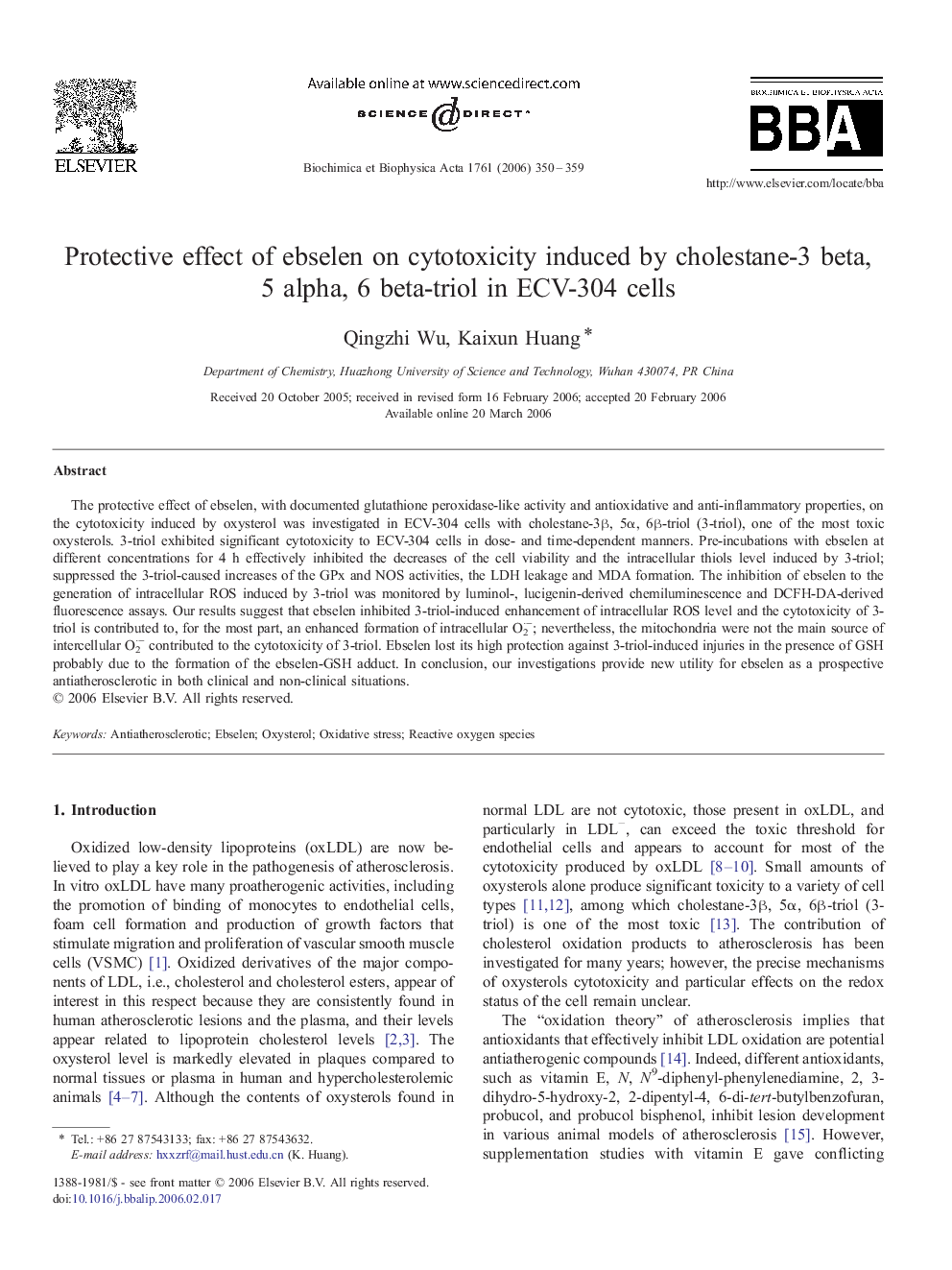| Article ID | Journal | Published Year | Pages | File Type |
|---|---|---|---|---|
| 1950350 | Biochimica et Biophysica Acta (BBA) - Molecular and Cell Biology of Lipids | 2006 | 10 Pages |
The protective effect of ebselen, with documented glutathione peroxidase-like activity and antioxidative and anti-inflammatory properties, on the cytotoxicity induced by oxysterol was investigated in ECV-304 cells with cholestane-3β, 5α, 6β-triol (3-triol), one of the most toxic oxysterols. 3-triol exhibited significant cytotoxicity to ECV-304 cells in dose- and time-dependent manners. Pre-incubations with ebselen at different concentrations for 4 h effectively inhibited the decreases of the cell viability and the intracellular thiols level induced by 3-triol; suppressed the 3-triol-caused increases of the GPx and NOS activities, the LDH leakage and MDA formation. The inhibition of ebselen to the generation of intracellular ROS induced by 3-triol was monitored by luminol-, lucigenin-derived chemiluminescence and DCFH-DA-derived fluorescence assays. Our results suggest that ebselen inhibited 3-triol-induced enhancement of intracellular ROS level and the cytotoxicity of 3-triol is contributed to, for the most part, an enhanced formation of intracellular O2·−; nevertheless, the mitochondria were not the main source of intercellular O2·− contributed to the cytotoxicity of 3-triol. Ebselen lost its high protection against 3-triol-induced injuries in the presence of GSH probably due to the formation of the ebselen-GSH adduct. In conclusion, our investigations provide new utility for ebselen as a prospective antiatherosclerotic in both clinical and non-clinical situations.
